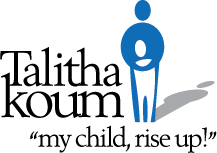Talitha Koum provided with a Doctoral-Level Baylor researcher
Email from Holly Burchett, Director of Community Relations
Office of External Affairs, Baylor University, January 29, 2021
Yesterday the Solid Gold Neighbor Research Fellow Program committee (more information here) comprised of community leaders and faculty engaged in Community Based Participatory Research chose to move forward with including your organization in the research program for this next semester. We are excited to launch this inaugural program with each of you!
The following organizations have been selected with graduate level researcher specified below:
Community Cancer Association (Master’s level)
Esther’s Closet (Master’s level)
First United Methodist Church of Waco (Master’s level)
Talitha Koum Institute (Doctoral level)
The Cove (Doctoral level)
We will announce and open applications for graduate students to apply to support your project beginning the week of February 8th. Applications will be due from graduate students on April 16th and the advisory committee will review applications with decisions occurring by the beginning of May. At this point, we will introduce you to your collaborative student and share information about their background in preparation for summer engagement. We are tentatively hoping to schedule the 1-day Community Based Participatory Research training, where the final research question and deliverables specific to your organization will be determined. The research projects will commence in the fall of 2021.
We are thankful for your partnership with the Office of External Affairs and Baylor University.
The following is an excerpt from our Talitha Koum proposal detailing our suggested research:
In an initial study, we of Talitha Koum Institute would like to evaluate the early stage efficacy of our approach compared to a control group (children with similar ACE scores but not enrolled). In terms of assessing the potential for school success, we would be looking at self-regulation and each child’s ability to cooperate with a functional routine.
The results of that study can be used to refine and/or improve our approach, which, long-term, seeks to reduce poverty in the Waco area through greater learning opportunities, concomitantly reducing the burden on local public health and social service providers.
Further, we would share this study with entities engaged in studying child well-being in our county with hopes of encouraging those providers to administer the ACE tool to their constituents helping to build a county-wide picture of child trauma and its correlative effects.
